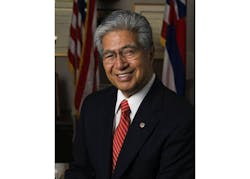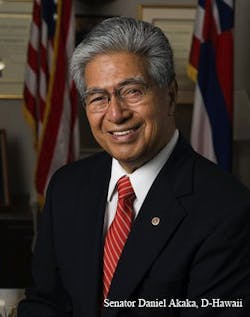"I am pleased that my Whistleblower Protection Enhancement Act is heading to the president's desk,” said Sen. Daniel K. Akaka, D-Hawaii, who authored the bill and championed it for more than a decade “We must protect public servant whistleblowers who risk their careers to disclose waste, fraud and abuse. They make the federal government more effective and save taxpayers money.”
The Whistleblower Protection Enhancement Act of 2012 will:
- Clarify that any disclosure of gross waste or mismanagement, fraud, abuse or illegal activity may be protected, but not disagreements over legitimate policy decisions;
- Suspend the sole jurisdiction of the Federal Circuit Court of Appeals over federal employee whistleblower cases for two years;
- Extend Whistleblower Protection Act coverage and other non-discrimination and anti-retaliatory laws to all employees of the Transportation Security Administration;
- Clarify that whistleblowers may disclose evidence of censorship of scientific or technical information under the same standards that apply to disclosures of other kinds of waste, fraud and abuse;
- Codify the anti-gag provision that has been part of every Transportation-Treasury Appropriations bill since 1988;
- Establish Whistleblower Protection Ombudsmen to educate agency personnel about whistleblower rights; and
- Provide the Office of Special Counsel with the independent right to file "friend of the court" briefs, or amicus briefs, with federal courts.
“This much needed update helps whistleblowers who risk their careers by sticking their necks out to simply tell the truth,” said Sen. Chuck Grassley, R-Iowa. “The Whistleblower Protection Enhancement Act is an important step forward, but improvements are still needed to ensure that intelligence community whistleblowers receive the protection they deserve for uncovering fraud deep within the bureaucracy.”
The bill was a bipartisan effort: It was authored by Akaka along with Sens. Susan Collins, R-Maine, Chuck Grassley, R-Iowa, Joe Lieberman, ID-Conn., Carl Levin, D-Mich., Tom Carper, D-Del., Patrick Leahy, D-Vt., Tom Harkin, D-Iowa, Mark Pryor, D-Ark., Mary Landrieu, D-La., Claire McCaskill, D-Mo., Jon Tester, D-Mont., Mark Begich, D-Alaska, Ben Cardin, D-Md., and Chris Coons, D-Del.
Reps Darrell Issa, R-Calif., Elijah Cummings, D-Md., Todd Russell Platts, R-Pa., and Chris Van Hollen, D-Md., were instrumental in moving the bill through the House of Representatives, where it passed unanimously on Sept. 28.
Public Citizen, a nonprofit consumer advocacy organization, applauded the passage of the Whistleblower Protection Enhancement Act.
“Millions of civil federal employees no longer need live in fear of retaliation for standing up to wrongdoing in the workplace,” said Keith Wrightson, worker safety and health advocate for Public Citizen’s Congress Watch Division. “By giving federal workers more opportunity and resources to identify hazardous workplace situations, the government will become more efficient.”
About the Author

Laura Walter
Laura Walter was formerly senior editor of EHS Today. She is a subject matter expert in EHS compliance and government issues and has covered a variety of topics relating to occupational safety and health. Her writing has earned awards from the American Society of Business Publication Editors (ASBPE), the Trade Association Business Publications International (TABPI) and APEX Awards for Publication Excellence. Her debut novel, Body of Stars (Dutton) was published in 2021.

